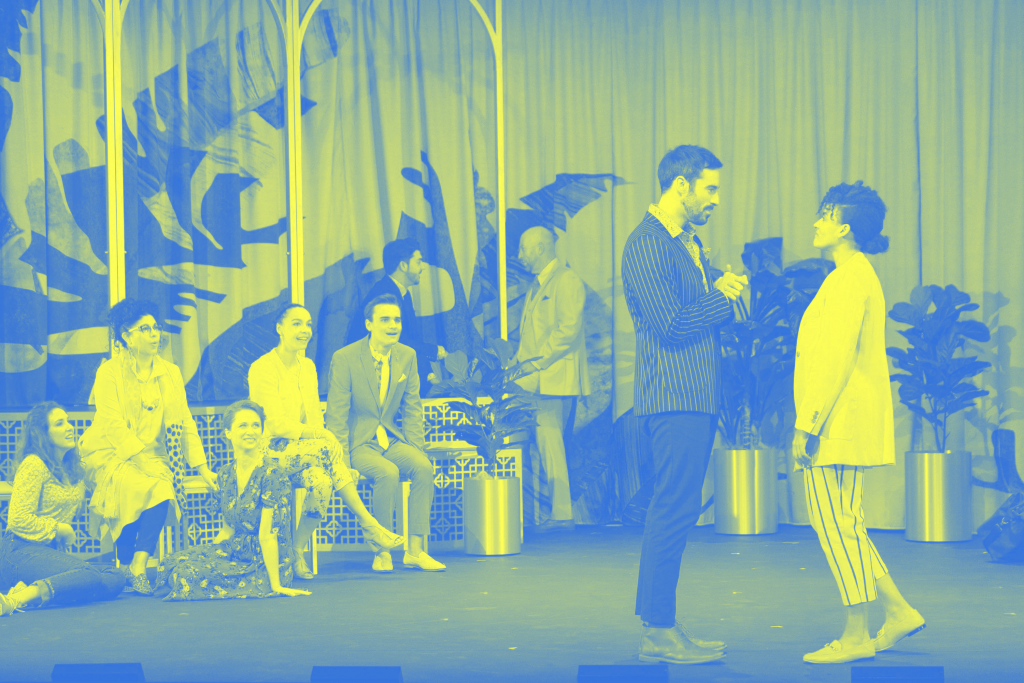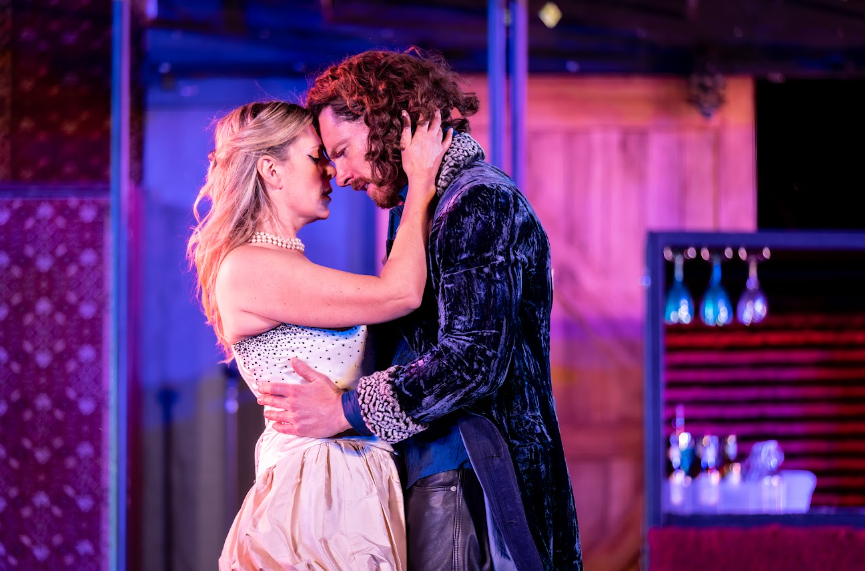
‘Much Ado About Nothing’ // Bell Shakespeare
‘Much Ado About Nothing’ was inviting.
‘Much Ado About Nothing’ is one of Shakespeare’s most beloved comedies. This is possibly because it succeeds on levels where some of his other works fall short when viewed through anything but a structuralist or formalist lens. ‘The Taming of the Shrew’, for example, can be a hard thing to behold in 2019.
And while ‘Much Ado About Nothing’ does employ some questionable views on women in its final act (and in its title), most of its comedy is derived from the back-and-forth between its leads who are presented as equals despite their different sexes – a rarity in Shakespearean texts.
In fact, one could argue that this equivalency is among Shakespeare’s most significant contributions to future literature. It has certainly formed the basis of almost every romantic comedy of the past four centuries, and the ‘witty banter’ device is used by our best writers today to create characters who are likeable and engaging.
This version of ‘Much Ado About Nothing’ is certainly a comedy, but played as far more than a verbal one. Bell Shakespeare director James Evans, obviously a passionate fan of the work, had found many comic highlights in what the actors do as much as in what they say, and a particular sequence in which Benedick ineptly tries to eavesdrop on a knowing Don Pedro, Claudio and Leonato as they feed him misinformation is comic artistry.
In the role of Benedick, Duncan Ragg is an incomprehensible delight. A master of the Jacques Lecoq principle of le Jeu, Ragg feels the response of the audience course through him and invites them into his performance. Most remarkable is his ability to adapt to the pulse of the audience without ever losing a beat of the Shakespearean meter. The poetry and rhythm of Shakespeare does not feel out of place in this mouth, even amid the winks and nods that the throws to the crowd.
Similarly resourceful is Will McDonald in the dual role of Claudio and Borachio. His performance is incredibly precise and so natural that one may forget he using such archaic language. This precision invited audiences to follow every beat and nuance in a text that could easily fly over the heads of those not familiar with the piece. Unfortunately, the strength of McDonald’s performance tends to highlight the fact that not every actor onstage is at this level.
One who certainly is, however, is Paul Reichstein as the villainous Don John. His Alan-Rickman-esque portrayal is charged with cynicism and seediness, but this never feels over the top or out of place. A chill of unease ripples throughout the theatre when he appears, and it is a shame his role does not allow him more stage time as the integrity and depth of his performance does make his absence noticeable.
The most obvious tragedy in this comedy is that some performers are so perfect in their craft that those who are not stand out for the wrong reasons. Of all Shakespeare’s works, this one is probably where such a discrepancy of talent is going to be most obvious, given how much of the script relies on balanced repartee.
Production design by Pip Runciman gives this interpretation a modern Sicilian vibe, which effectively links the original text to a contemporary context that works for it. It’s accessible for a 2019 audience without impeding or disrespecting the source text.
Presented at Home of the Arts, ‘Much Ado About Nothing’ is a production that will work for newcomers to Shakespeare as well as seasoned fans. Its strengths make it a more than worthwhile experience, even if its weaknesses may be glaring.


















